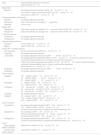Diabetes mellitus type 2 is the main cause of chronic kidney disease. Patients with this disease have higher morbidity and mortality and risk of hypoglycaemia than those without this disease. In 2010, type 2 diabetes was the reason for starting renal replacement therapy in 24.7% of patients. The prevalence of microalbuminuria, proteinuria and a reduced glomerular filtration rate is 36%, 8% and 22%, respectively. The presence of albuminuria is a predictor of chronic kidney disease. Diabetic kidney disease, previously known as diabetic nephropathy, refers to kidney disease caused by diabetes. Renal hyperfiltration is a marker of intraglomerular hypertension and a risk factor for onset and progression. The new antidiabetic drugs, mainly dipeptidyl peptidase-4 inhibitors, sodium-glucose cotransporter inhibitors and glucagon-like peptide-1 agonists, have been shown to prevent or slow the progression of kidney disease.
La diabetes mellitus tipo2 es la principal causa de enfermedad renal crónica. Estos pacientes presentan mayor morbimortalidad y riesgo de hipoglucemias que el resto. En 2010, la diabetes tipo2 fue causa del inicio de terapia renal sustitutiva en el 24,7% de los pacientes. La prevalencia de microalbuminuria, proteinuria y disminución del filtrado glomerular es del 36, 8, y 22%, respectivamente. La presencia de albuminuria es un factor predictivo de enfermedad renal crónica. La enfermedad renal diabética, previamente conocida como nefropatía diabética, hace referencia a la enfermedad renal causada por la diabetes. La hiperfiltración renal es marcador de hipertensión intraglomerular y factor de riesgo tanto de inicio como de progresión. Los nuevos antidiabéticos, fundamentalmente los inhibidores del enzima dipeptidil peptidasa-4, los inhibidores del cotransportador de sodio/glucosa y los agonistas del péptido similar al glucagón tipo1, han demostrado prevenir o enlentecer la progresión de la enfermedad renal.
Article
Diríjase desde aquí a la web de la >>>FESEMI<<< e inicie sesión mediante el formulario que se encuentra en la barra superior, pulsando sobre el candado.

Una vez autentificado, en la misma web de FESEMI, en el menú superior, elija la opción deseada.

>>>FESEMI<<<










